Zachary Karabell on Mark Lilla’s ‘The Stillborn God’
With religious passions inflaming and complicating politics worldwide, the very project of a secular future is threatened. In "The Stillborn God," Mark Lilla reveals the roots of the age-old quest to bring political life under God's authority. He also explores how modern Western thinkers found a way to free politics from theological power and build barriers against destructive religious fanaticism.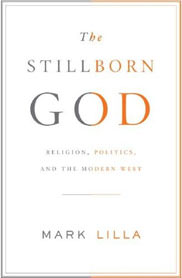
One of the bedrock assumptions of our society is that we have, after centuries of struggle, finally achieved an enviable balance that allows individuals to have their own religious beliefs but does not permit religion to dictate public life and thereby enflame passions and generate deadly conflict. That balance was hardly easy to create, and only after many years of two steps forward and one step back did we in the West finally — supposedly — arrive at the right formula. But arrive we did, says Mark Lilla in “The Stillborn God: Religion, Politics and the Modern West,” his provocative, passionate essay on what he calls “the Great Separation.”
With the rise of a virulent strain of radical fundamentalism in the Muslim world, that separation is being assailed, and we seem bewildered that anyone could argue against it. Lilla, however, contends that it is not the fundamentalists — Muslim, Christian and Jewish — who are seeing the world askew; it is Western culture and its defenders. “We must remind ourselves,” he writes, “that we are living in an experiment, that we are the exceptions. We have little reason to expect other civilizations to follow our unusual path, which was opened up by a unique theological-political crisis within Christendom.” In short, Lilla believes that we> have gotten one thing utterly wrong: We are not us. We are them. We are not the rule; we are the exception.
The rule for Lilla is a blurring of the political and theological that has defined most societies from time immemorial and Western society for most of recorded history until only recently. Since the dawn of Christianity, there has been a deep confusion in Western society about what constitutes a good society, and Lilla astutely highlights what he sees as the limitations of the New Testament in not “articulating a clear, coherent picture of the good Christian political order.” Although full of moral guidance, the New Testament is indeed vague about how society should be structured, perhaps because most of those who penned its text believed that the end of days was near and hence that it would be a waste of time thinking too much about how to construct an ideal political society in this world. The result, however, was endless war and tension between different groups in what became Europe.
Lilla is a historian of ideas, and his book is primarily an intellectual history of the thinkers who confronted the problem of never-ending wars of theology and who sought a solution and an escape. Lilla’s hero in this endeavor is Thomas Hobbes, the 17th-century English philosopher who looked at the wreckage caused by theological conflict and offered a radical solution: structure society around man’s nature, not on God’s. And that nature isn’t pretty. For Hobbes, “the reason human beings in war commit acts no animal would commit is, paradoxically, because they believe in God. Animals fight only to eat or reproduce; men fight to get into heaven.” Because humans need someone to follow absolutely, Hobbes suggested that they follow not God, whose will is mysterious when applied to politics, but rather an absolute ruler, “an earthly God.”
From Hobbes, Lilla then charts the intellectual peregrinations of thinkers as varied as Rousseau, Kant, Hegel and Karl Barth. Some are more familiar than others, but the book as a whole is a sophisticated series of essays on the way these thinkers slowly erected a wall between theology and politics and inexorably built the foundations for a society predicated not on God’s will but on human action and human thought.
As with any endeavor of this kind, it is easy to quibble with Lilla’s interpretations and his selective readings. But that is less an issue with what Lilla has done and how he has done it than with intellectual history itself. By nature, it imposes a coherence and sense of orderly progression on intellectual thought — even when acknowledging just how messy the evolution of ideas can be. Because Lilla is looking for the roots of the Great Separation, he naturally finds them, at the expense of clearing away not just weeds but roots of other ideas that are not the subject of his inquiry. Still, that comes with the territory, and while it would have strengthened his case to have acknowledged that his question — and not some bright, shining self-evident historical progression of ideas — determined what he does and does not pay attention to, he succeeds in excavating the path that led to what we now blithely call the separation of church and state.
Lilla is by no means a romantic about that separation. He understands how hard it was to achieve, and how unsatisfying it can be and continues to be even to this day. Like democracy, it was never a great solution, only better than the alternatives.
Where Lilla does fall short, however, is in the very presumption that there was a Great Separation, or that it is alien to all but the modern West. It is without a doubt true that Western Europe today is a series of societies defined less and less by Christianity. However, the same cannot be said of the United States. While Americans don’t fight wars of religion with one other, it is a stretch to say that there has been a Great Separation in the United States or that God is stillborn in contemporary American life. Fighting to be heard, perhaps, but stillborn? It is also wrong to generalize these issues to humanity. Chinese culture has a powerful stream of Confucian thought which is in essence God-less. China hasn’t had a Great Separation because it never had to grapple with an immanent God, a transcendent God, or any God. And India? Let’s not get started on India, with its one God, its one Gods, its many Gods, no Gods, pantheon of Gods, and castes, and Vedas and Upanishads and just about anything and everything that has been anywhere and everywhere.
Lilla concludes by saying that “ours is a difficult heritage …because it demands self-awareness” rather than revelation, because in recognizing the perils of messianic religion, we are left to our devices and those are rarely satisfying. There is something troubling about that sentiment, and self-satisfied. Lilla is saying that our path — or rather the path he says we took — is hard, but it is a good hard and a better hard, and, it is strongly implied, a more evolved hard. That would be news to the Chinese, to the Indians, and to billions outside the West who have engaged in equally human struggles in vastly different ways, who don’t know from Hobbes and couldn’t spell Kant. It would also be news to preachers all across America who everyday lament the separation of church and state and are looking for ways to put Humpty Dumpty back together again.
And as for those whom Lilla does not name but whom he nonetheless points a j’accuse-like finger at — the children of Osama bin Laden — they do challenge many of our notions as well as those of a billion Muslims who live the great separation more than most in the West recognize. To imply that those children of Bin Laden define the universe of billions of them and that Hobbes and his thought define us is to force far too many square pegs into one very small round hole. Lilla has done a fine job of highlighting and explicating some of the great thinkers of Western civ and exploring how they grappled with some vexing problems. But his reading of who we are is strangely simplistic, and his view of them, of those who have supposedly not made the journey to the other shore, is ultimately confined to a very small them in a wide world that is far more sophisticated and wonderfully more complicated than these essays suggest.
Zachary Karabell is the author of several books, including, most recently, “Peace Be Upon You: Fourteen Centuries of Muslim, Christian, and Jewish Coexistence in the Middle East,” published by Alfred A. Knopf.
Your support matters…Independent journalism is under threat and overshadowed by heavily funded mainstream media.
You can help level the playing field. Become a member.
Your tax-deductible contribution keeps us digging beneath the headlines to give you thought-provoking, investigative reporting and analysis that unearths what's really happening- without compromise.
Give today to support our courageous, independent journalists.
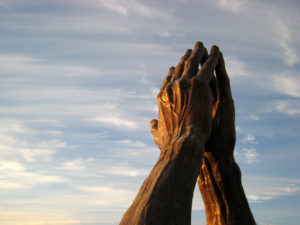
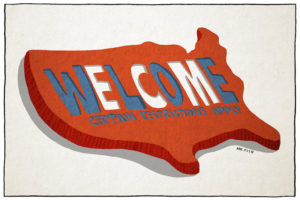
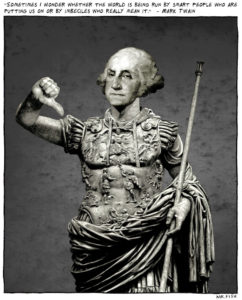

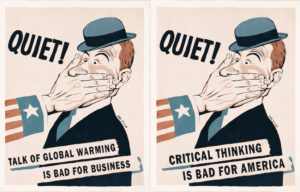
You need to be a supporter to comment.
There are currently no responses to this article.
Be the first to respond.